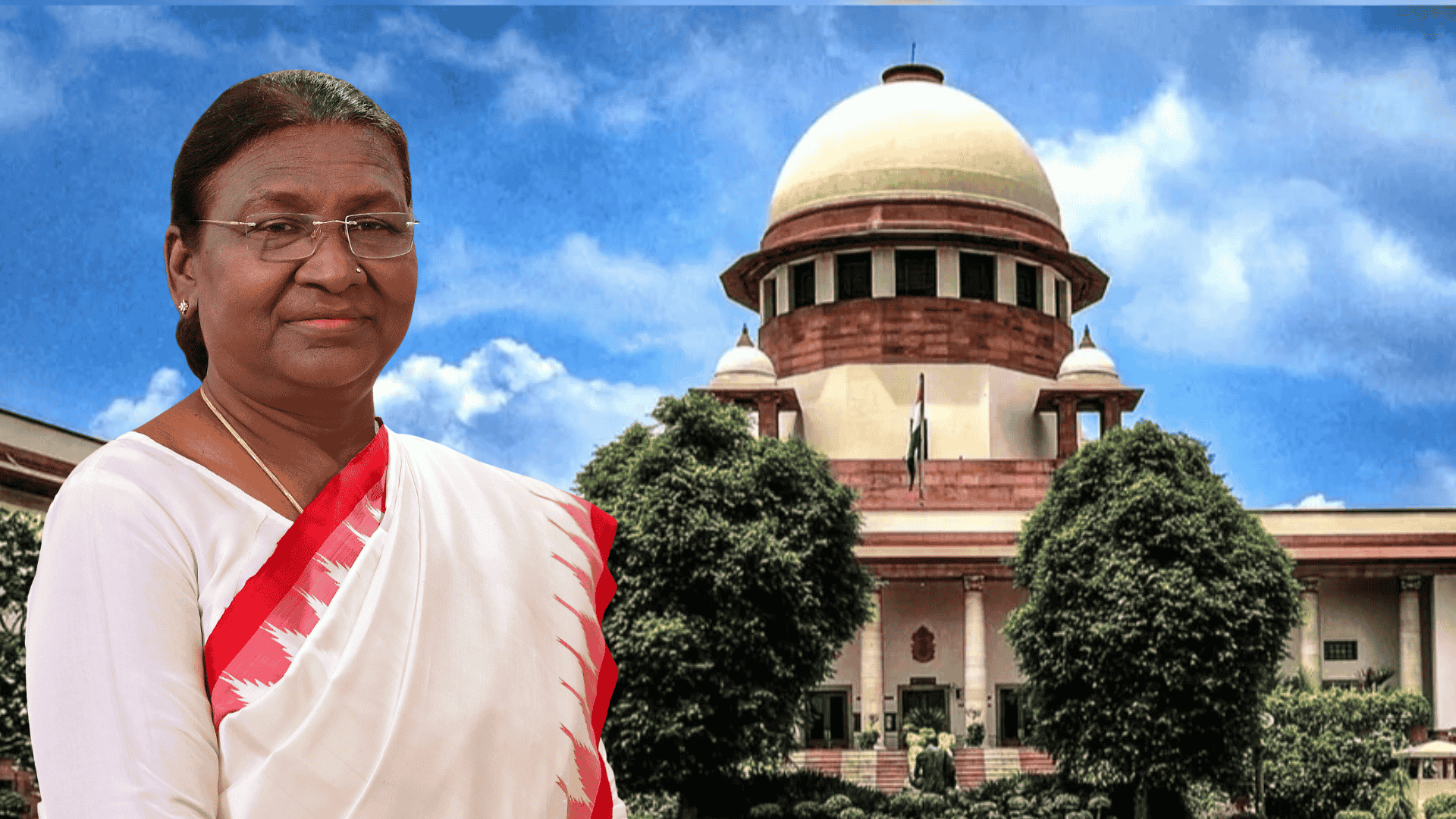President Seeks Supreme Court’s Advice: Major Question on Timelines for Governors and President to Act on State Bills
Key Points
President Droupadi Murmu has raised 14 significant questions following the Supreme Court’s April 8 judgment, which set timelines for Governors and the President to act on Bills passed by State Legislatures.
The President has sought the Supreme Court’s opinion under Article 143(1) – this article empowers the President to seek the Supreme Court’s advice on “any question of law or fact” of public importance.
The Supreme Court’s advice in such cases is not binding.
The President has asked whether, in the absence of a specific constitutional provision, the judiciary can prescribe a timeline for action.
The Supreme Court, in the Tamil Nadu vs. Governor case, had termed the process of referring 10 Bills to the President as illegal.
In its April 8 judgment, the Supreme Court, for the first time, set a three-month timeline for the President to decide on Bills.
The President has also questioned whether, under Article 142, the Supreme Court can in any way substitute the orders of the President or the Governor.
What is Article 143(1)?
Empowers the President to refer to the Supreme Court any question of law or fact of public importance for its opinion.
The Supreme Court’s opinion is advisory, not a binding judgment.
Since 1950, the President has invoked this power at least 15 times.
Why is the Supreme Court’s Advice Not Binding?
Article 143(1) uses the word ‘may’, giving the Court discretion to answer or decline.
In the past, the Supreme Court has refused to answer Presidential references twice (e.g., Ayodhya dispute, 1993; Jammu & Kashmir Resettlement Act, 1982).
The Court’s advice does not serve as a binding legal precedent.
Can the Supreme Court Overturn Its Own Judgment Through Reference?
In the 1991 Cauvery water dispute, the Supreme Court clarified that Article 143 cannot be used to review or overturn established judicial decisions.
The government may file a review petition or a curative petition if it seeks reconsideration.
Historical Perspective: Examples of Presidential References
Cauvery Water Dispute (1991): The Supreme Court declared the state government’s order unconstitutional.
Ayodhya Dispute (1993): The Supreme Court declined to answer the President’s question.
Gujarat Elections (2002): The Supreme Court upheld the Election Commission’s decision.
2G Spectrum Licenses (2012): The Court clarified that auction is not a constitutional mandate for the allocation of natural resources.
Exam-Relevant Facts
Article 143(1): President’s advisory power
Article 145(3): Hearing by a five-judge bench
Article 142: Supreme Court’s special power for “complete justice”
Article 201: President’s decision on state Bills
The President’s advice is not binding but holds administrative and political significance
Read More:
Articles of the Constitution Explained – Atharva Examwise
Powers of Governor and President – Atharva Examwise
Landmark Supreme Court Judgments – Atharva Examwise
Why this matters for your exam preparation
Interpretation of Constitutional Provisions: Questions related to Articles 143, 142, 145, 201 are frequently asked in UPSC, PCS, and other exams.
Understanding Contemporary Issues: The advisory relationship between the President and Supreme Court, judicial review, and current examples of Centre-State relations are essential for answer writing and interviews.
Case Studies and Examples: Historical instances of Presidential References make your answers more factual and analytical.
News Analysis: This development allows for in-depth discussion on the balance of powers between Governor, President, and Judiciary – highly relevant for UPSC GS-II, Polity, and Essay papers.
Conclusion:
Studying this topic in depth will benefit you not only in Prelims but also in Mains and Interview. Staying updated on such constitutional and contemporary issues is crucial for answer writing and developing analytical skills.







